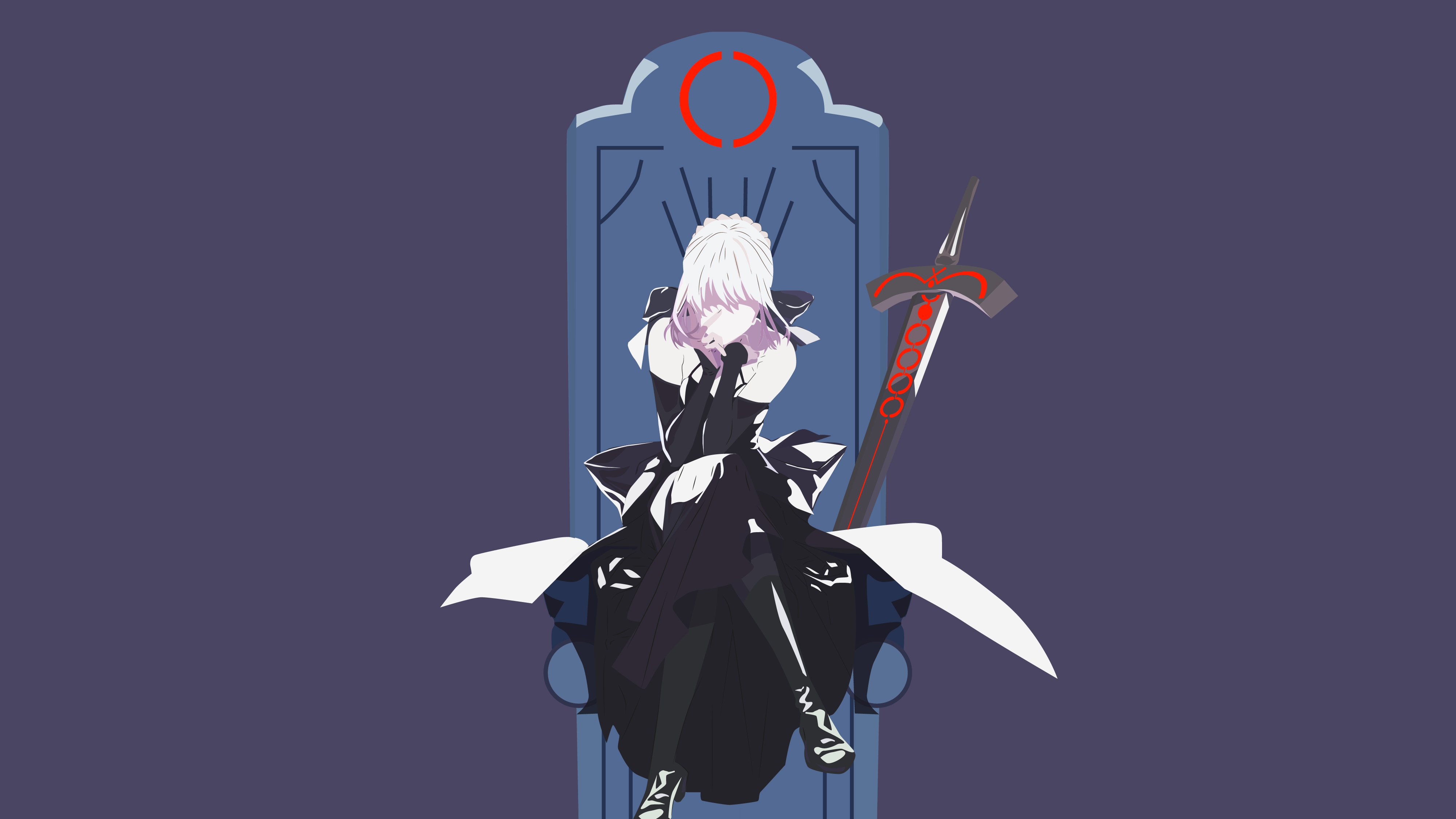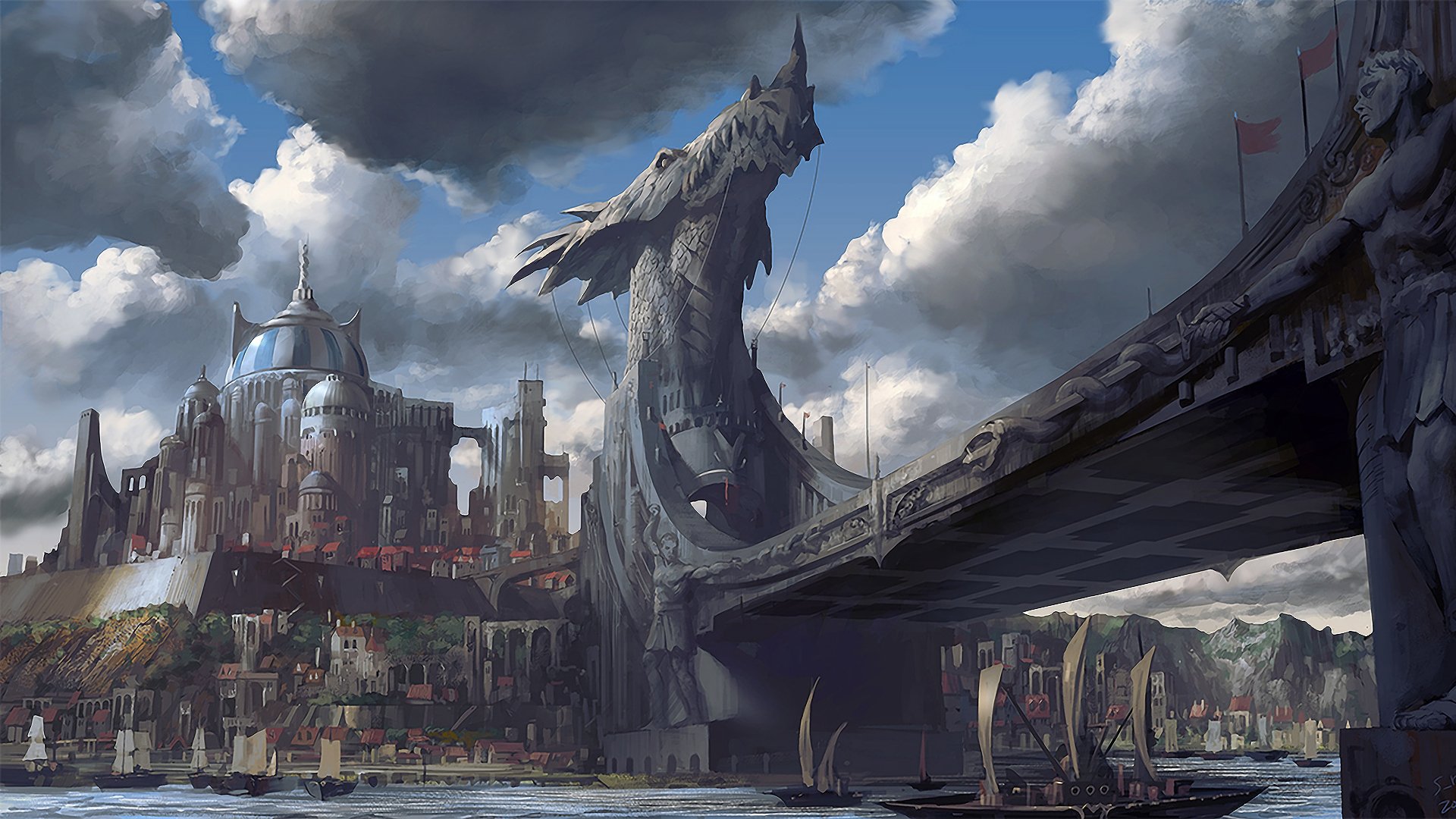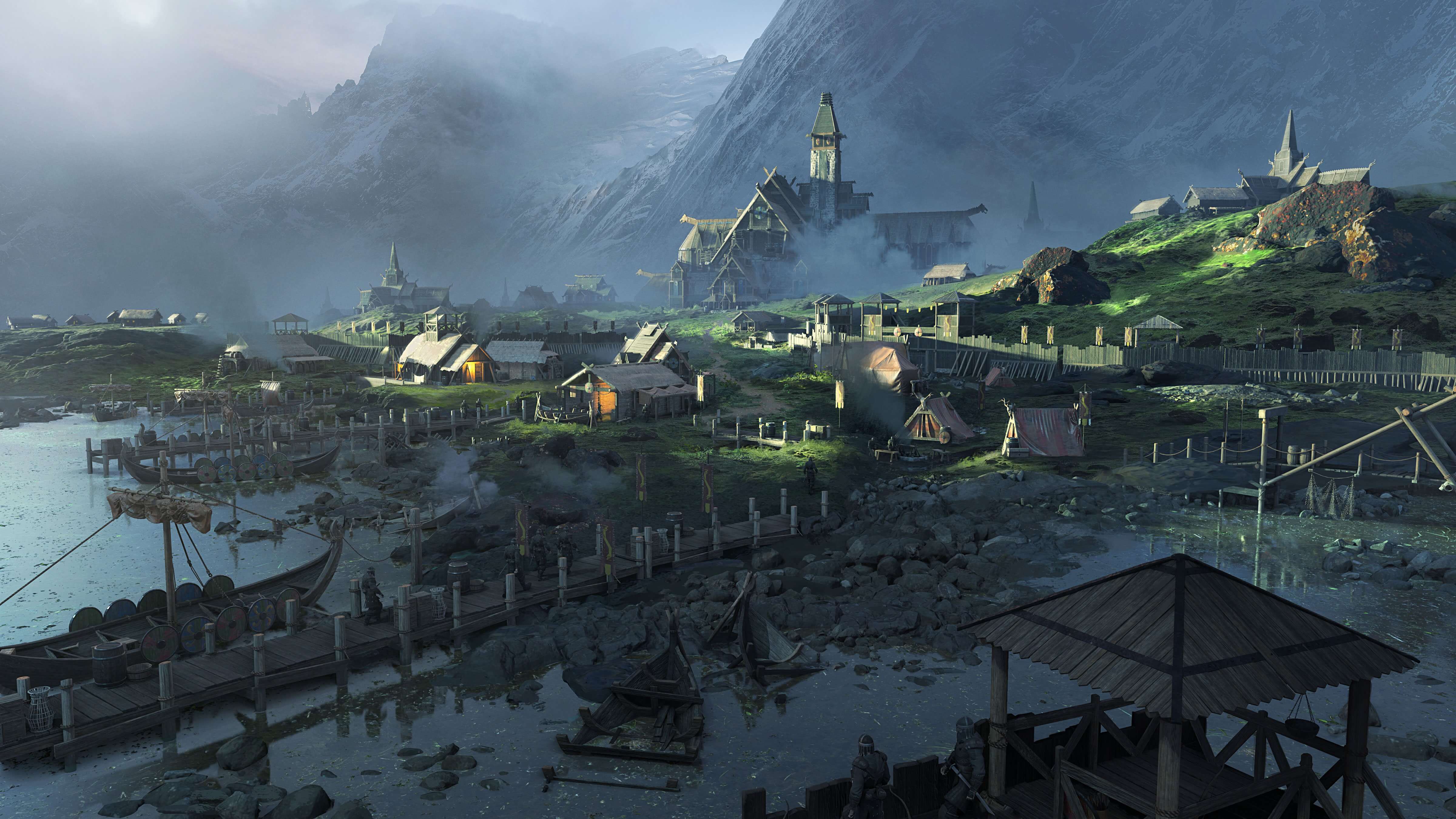
“I believe, so therefor it is so.”
It has been two thousand years since the death of The Hero of the Glades.
In the wake of her death to free the world from the oppressive chains of the dark wizard, Gand, a world of liberty and sanctuary has flourished from the Viridian Sea to the Sands of Hahral. As a result, there is not one person in the world that does not know her legend.
Some say the Hero of the Glades was sent from the goddess herself to save the world from the wicked and vile. Others say she was a simple peasant girl who proved herself to the gods by enduring harrowing trials. The conclusion is the same, whichever interpretation one comes to believe; the Hero of the Glades stood against the forces of evil and won. One only has to look at the Kingdom that spawned in her name. The Kingdom of Itenaire.
Whilst Itena gave her life in the final battle, her allies–the sorcerer Sol, the warlord Haur, the hunter Antes, the swordmaster Aather, and the elf Glyndŵr–all were fortunate to meet the same end.
Gand had been stopped and purged from existence, but with him so too did Itena suffer a fatal blow. Her passing would become symbolic and the journey she had shared with them left them wondering what world to build in her absence. It is here that the bones of modern society began to form. Sol returned to the enclave of sorcery, which had been decimated since Gand had battled them to near extinction. Antes returned to his tribe in Hahral, fearful of the darkness that lingers in the world. Glyndŵr freed the elven slaves that Gand had taken and looked to rebuild the clanfolk. Haur reunited with the Confederation of Warlords that had aspired to depose Gand, history would recall him as the first King of Itenaire. As for Aather? Seeking no power of his own, he returned to Itena's birthplace and from there would create an order of protectors that would become the first collection of knights.
In the time since then the idea of kingdoms have been formalized, a caste system of lords and underlords have become the standard, the enclave of sorcery has been slowly rebuilt from the bones of what was, and Itenaire has been led by House Haurington, who still maintains its connection to its founding hero. And, of course, the elite guardians of the glade and ever present protectors of order and justice, Order of the Glade, keep a watchful eye over the realm should another mad mage or other unseen threat arise once more.
And so here you are, peasant, noble, or somewhere in between, traveling to the birthplace of the Hero of the Glades, to participate in a trial that could help define you. Do you have what it takes to follow in Itena's honor? To become a warden?
Let's find out.
In the wake of her death to free the world from the oppressive chains of the dark wizard, Gand, a world of liberty and sanctuary has flourished from the Viridian Sea to the Sands of Hahral. As a result, there is not one person in the world that does not know her legend.
Some say the Hero of the Glades was sent from the goddess herself to save the world from the wicked and vile. Others say she was a simple peasant girl who proved herself to the gods by enduring harrowing trials. The conclusion is the same, whichever interpretation one comes to believe; the Hero of the Glades stood against the forces of evil and won. One only has to look at the Kingdom that spawned in her name. The Kingdom of Itenaire.
Whilst Itena gave her life in the final battle, her allies–the sorcerer Sol, the warlord Haur, the hunter Antes, the swordmaster Aather, and the elf Glyndŵr–all were fortunate to meet the same end.
Gand had been stopped and purged from existence, but with him so too did Itena suffer a fatal blow. Her passing would become symbolic and the journey she had shared with them left them wondering what world to build in her absence. It is here that the bones of modern society began to form. Sol returned to the enclave of sorcery, which had been decimated since Gand had battled them to near extinction. Antes returned to his tribe in Hahral, fearful of the darkness that lingers in the world. Glyndŵr freed the elven slaves that Gand had taken and looked to rebuild the clanfolk. Haur reunited with the Confederation of Warlords that had aspired to depose Gand, history would recall him as the first King of Itenaire. As for Aather? Seeking no power of his own, he returned to Itena's birthplace and from there would create an order of protectors that would become the first collection of knights.
In the time since then the idea of kingdoms have been formalized, a caste system of lords and underlords have become the standard, the enclave of sorcery has been slowly rebuilt from the bones of what was, and Itenaire has been led by House Haurington, who still maintains its connection to its founding hero. And, of course, the elite guardians of the glade and ever present protectors of order and justice, Order of the Glade, keep a watchful eye over the realm should another mad mage or other unseen threat arise once more.
And so here you are, peasant, noble, or somewhere in between, traveling to the birthplace of the Hero of the Glades, to participate in a trial that could help define you. Do you have what it takes to follow in Itena's honor? To become a warden?
Let's find out.
L A C O R R O N: a w o r l d a t o d d s
Lacorron, or Isradd-Bodolaeth in the contemporary elven tongue, is the world your characters are from. It is an ancient world with two sentient races, humans and elves.
Around two thousand years ago ended the Age of Chaos, a time of upheaval defined by warlords, cruel sorcerers, and everything in between. In two thousand years it has evolved from a wild, war-torn iron age to a contemporary age of ideals, prosperity, and order. If not for the defeat of Gand, who knows where Lacorron would be today. Progress aside, this does not mean it is an age without conflict.
Below are summaries of the great nations of this tenuous “Age of Peace”. Familiarize yourself with them.
Around two thousand years ago ended the Age of Chaos, a time of upheaval defined by warlords, cruel sorcerers, and everything in between. In two thousand years it has evolved from a wild, war-torn iron age to a contemporary age of ideals, prosperity, and order. If not for the defeat of Gand, who knows where Lacorron would be today. Progress aside, this does not mean it is an age without conflict.
Below are summaries of the great nations of this tenuous “Age of Peace”. Familiarize yourself with them.
C H R O N I C L E: e v e n t s o f r e l e v a n c e
D I V I N I T Y: g o d s o f h u m a n i t y
Seleistia
M A N A A R T S: m y s t i c i s m a n d m a g i c
Sorcery is the reaction when mana is transmuted into physical matter. A combination of the innate, spiritual, and primordial elements that make up terrestrial existence.
Like blood in the pathways to the heart, Mana is the pathway to the soul, the foundation of living essence. The soul of a human or elf is the gateway to the cosmos and the most pure thing of all, whether it is innately on the axis of harmony (light) or chaos (darkness). Once someone’s powers are awakened they open the door to what is known as sorcery, the art of controlling mana–sometimes referred to as the mana arts by those too haughty for a term such as sorcery.
For humans, their mana is rigid and often hard to control, often described as not as free as an elf’s mana. It is, however, far more potent and virulent, as human sorcerers are capable of higher volumes once they do find a pathway to awaken their abilities and control such sorcery. As such the mana produced by a human holds only one element of sorcery, contrasting with elven mana being a thread of multiple elemental energies. The first human sorcerers found this unfair, viewing the elves as arrogant in the favour given to them by the universe, but soon they found that elves lacked the same potency as they did and that they couldn’t even manifest their mana in the same way. After all, a human could create a fireball from the very essence of their mana and an elf could only control what was around them.
At the rawest, simplest stage, this is what it means to control the mana arts.
But applications of such magicks does not start and end there, for there are those unknown to history that have tampered with things well beyond the mana produced by one’s soul. Such forbidden arts are mostly unknown, though unlike them the art of magecraft persists as something a little more conventional of an option. Within the Enclave of Sorcery, scholars of the mana arts explored the idea to transfer mana into items, researched ancient words of power left behind by the gods, and with the aid of master weaponsmiths crafted the first magical weapons known to man.
Such weapons have become a staple to factions like the Order of the Glade.
Like blood in the pathways to the heart, Mana is the pathway to the soul, the foundation of living essence. The soul of a human or elf is the gateway to the cosmos and the most pure thing of all, whether it is innately on the axis of harmony (light) or chaos (darkness). Once someone’s powers are awakened they open the door to what is known as sorcery, the art of controlling mana–sometimes referred to as the mana arts by those too haughty for a term such as sorcery.
For humans, their mana is rigid and often hard to control, often described as not as free as an elf’s mana. It is, however, far more potent and virulent, as human sorcerers are capable of higher volumes once they do find a pathway to awaken their abilities and control such sorcery. As such the mana produced by a human holds only one element of sorcery, contrasting with elven mana being a thread of multiple elemental energies. The first human sorcerers found this unfair, viewing the elves as arrogant in the favour given to them by the universe, but soon they found that elves lacked the same potency as they did and that they couldn’t even manifest their mana in the same way. After all, a human could create a fireball from the very essence of their mana and an elf could only control what was around them.
At the rawest, simplest stage, this is what it means to control the mana arts.
But applications of such magicks does not start and end there, for there are those unknown to history that have tampered with things well beyond the mana produced by one’s soul. Such forbidden arts are mostly unknown, though unlike them the art of magecraft persists as something a little more conventional of an option. Within the Enclave of Sorcery, scholars of the mana arts explored the idea to transfer mana into items, researched ancient words of power left behind by the gods, and with the aid of master weaponsmiths crafted the first magical weapons known to man.
Such weapons have become a staple to factions like the Order of the Glade.
C O N C E P T U A L I Z A T I O N: m a k i n g a c h a r a c t e r
First of all, welcome to Wardens of the Glade: a Light Fantasy RP.
In an attempt to return to my roots, overcome a fourteen month drought of writing anything new, and create something engaging I have pulled together an idea I’ve had an inkling of for some time now. A few years ago, Feyblue created the very first variation of their light fantasy story revolving around a group of knights. I really liked this idea and wanted to do something that was in the same kind of spirit, but wholly different.
Thus we have this game.
In Wardens of the Glade you will play an individual in the world of Lacorron, a setting ruled by kings, warlords, and sorcerers.
It is in your character’s purview to travel to the Grand City of Atutania and rise above their station through an open invitation to participate in a trial to become an initiate warden. They could have awakened their magical abilities, or perhaps those are still latent, but they are sure of themselves. They can be from any nation currently listed in the section above and come from any role in their societies: peasant, merchant, noble; any of the three major categories does not matter. The wardens do not ignore people based on lack of status or station.
I expect an understanding of basic English grammar and the ability to conceptualize and work with me without banal argumentation. I am just looking to have a fun time. The posting schedule will be flexible but while I am recovering from a great writing burnout, I will try to keep us on task. Basically, be cooperative and understanding. Don’t waste other people’s time. We’ll be good.
In an attempt to return to my roots, overcome a fourteen month drought of writing anything new, and create something engaging I have pulled together an idea I’ve had an inkling of for some time now. A few years ago, Feyblue created the very first variation of their light fantasy story revolving around a group of knights. I really liked this idea and wanted to do something that was in the same kind of spirit, but wholly different.
Thus we have this game.
In Wardens of the Glade you will play an individual in the world of Lacorron, a setting ruled by kings, warlords, and sorcerers.
It is in your character’s purview to travel to the Grand City of Atutania and rise above their station through an open invitation to participate in a trial to become an initiate warden. They could have awakened their magical abilities, or perhaps those are still latent, but they are sure of themselves. They can be from any nation currently listed in the section above and come from any role in their societies: peasant, merchant, noble; any of the three major categories does not matter. The wardens do not ignore people based on lack of status or station.
I expect an understanding of basic English grammar and the ability to conceptualize and work with me without banal argumentation. I am just looking to have a fun time. The posting schedule will be flexible but while I am recovering from a great writing burnout, I will try to keep us on task. Basically, be cooperative and understanding. Don’t waste other people’s time. We’ll be good.










